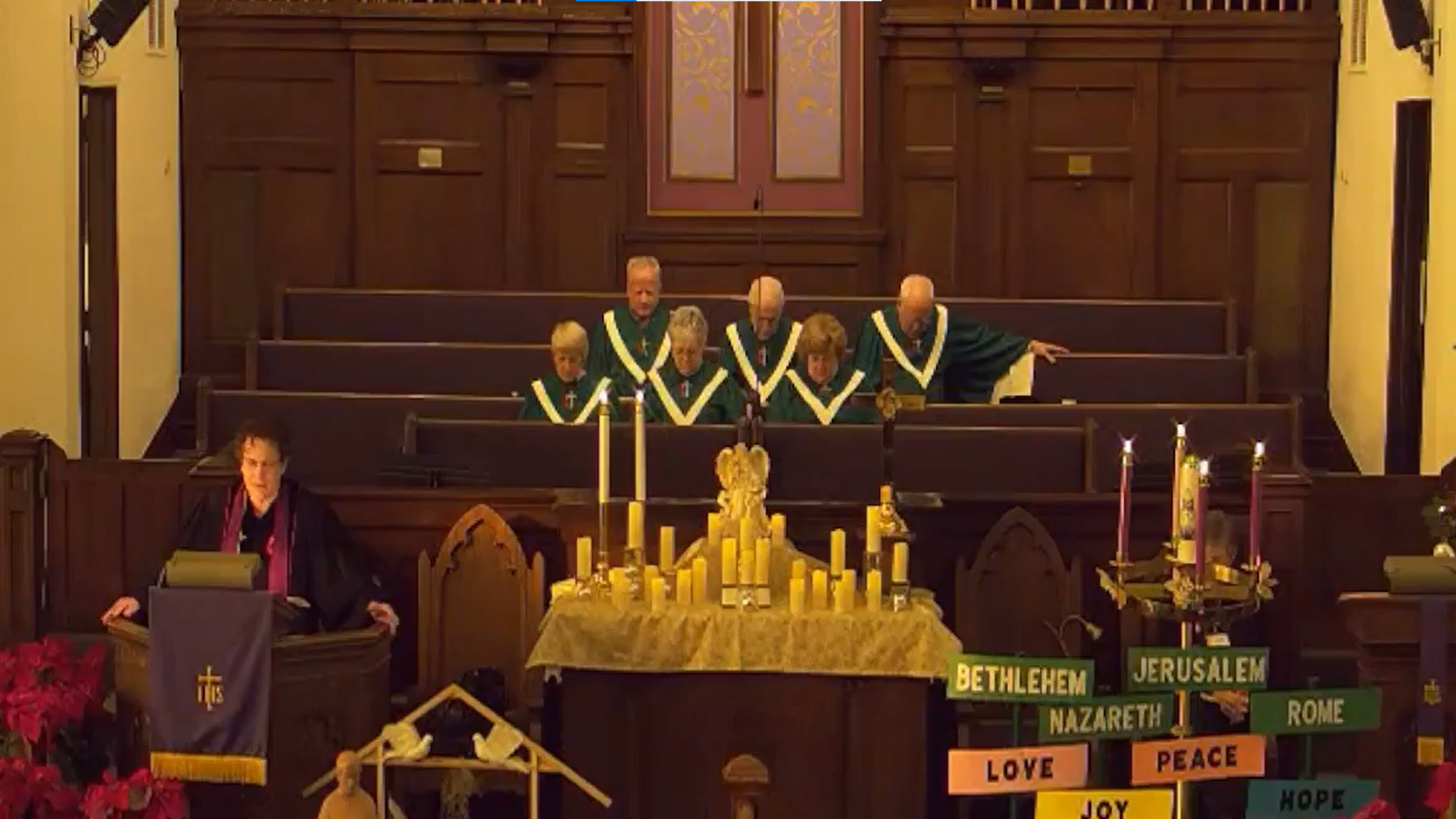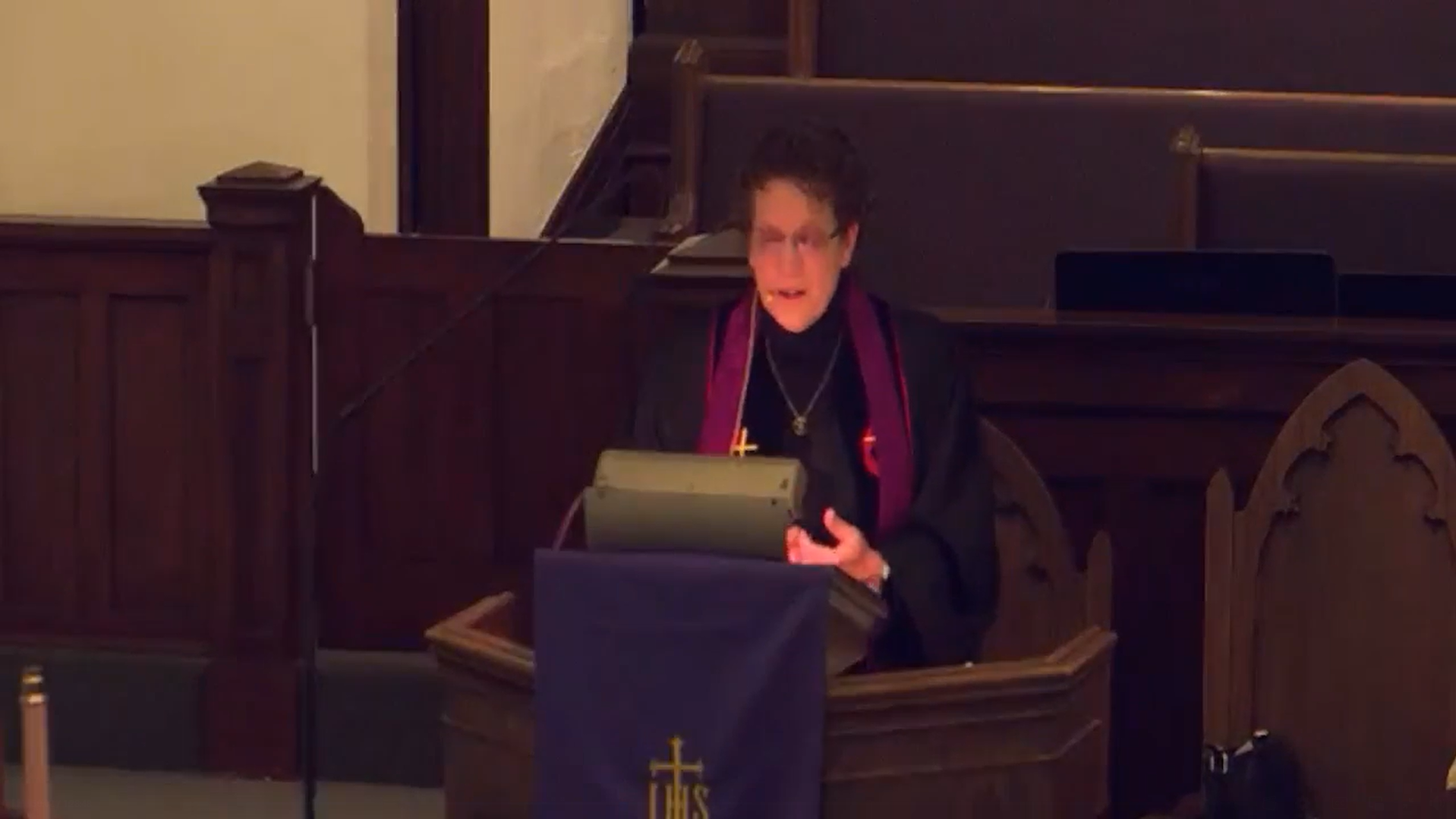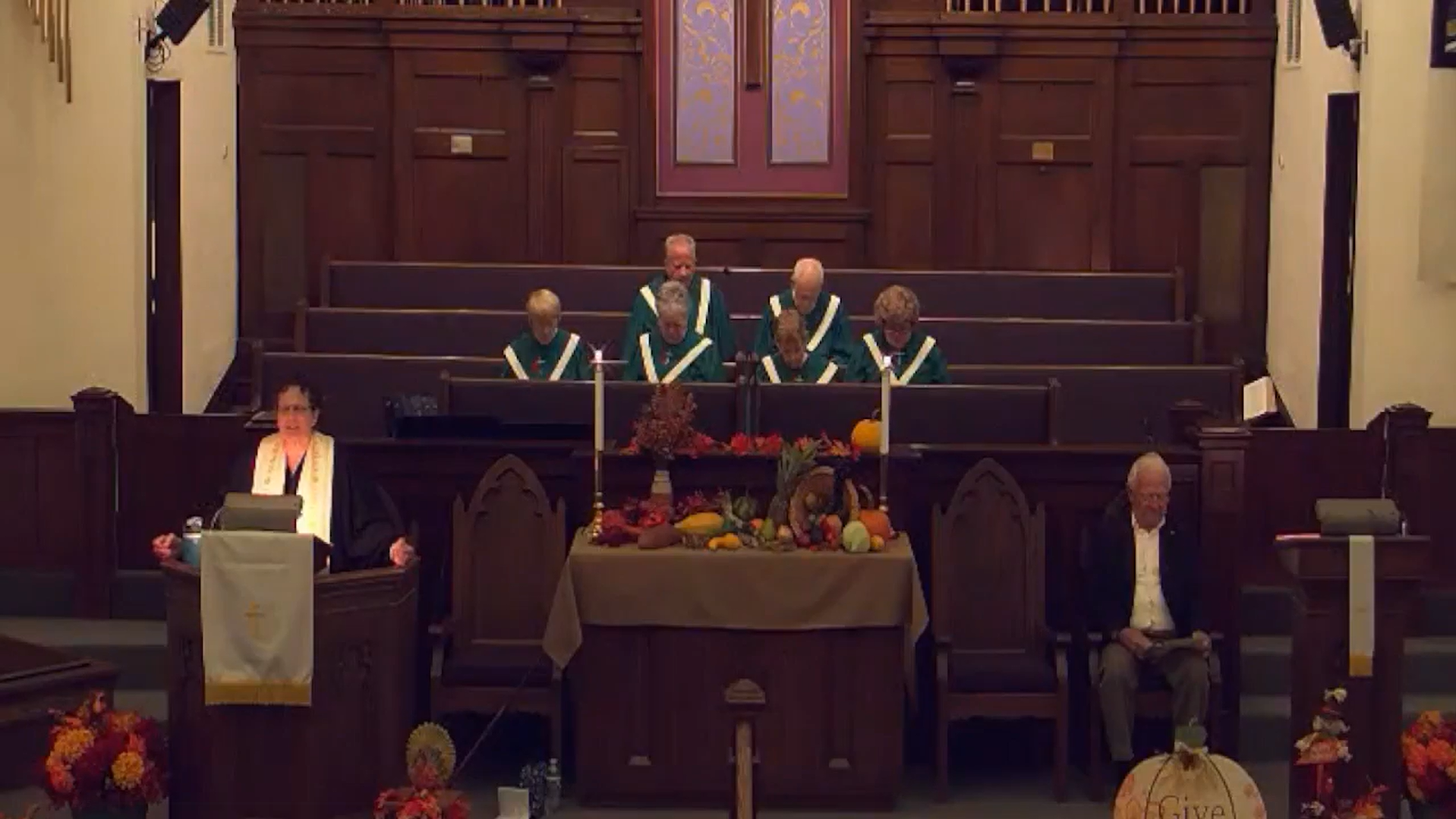
Jesus’ parents were ordinary, hardworking people – a carpenter and his wife who hoped to make a modest living in a society that mocked them just because of their ethnicity. They were poor, and their status would never be equal to the Jewish or Roman elite.

Luke didn’t have to mention the decree in his story. None of the other Gospel writers mention it. But Luke is also the author of Acts, which introduces us to Paul, who ultimately travels to Rome and establishes a church there. The Gospel of Luke has a purpose, and one of those purposes is to show us that it is possible to live a life of faith within the restraints of a powerful and authoritative government.

At this point, I know, it’s easy and perhaps fair to protest that while God may indeed know our needs, certainly many – far too many! – needs go unmet in this world. But I wonder: is the poverty that characterizes too much of our world caused by God not providing enough resources or is it a result of too many of us hoarding and misusing these resources because we are dominated by a sense of scarcity and inadequacy?
Browse all of the Sermons and Messages
The topic I believed needed to be addressed was how we get so focused on the problems that we don't look for solutions. We get so wrapped up in what is wrong with the world, the church and each other that we forget the reason we are here, our purpose, our goal, and our reward. I wanted so badly to pick at a wound that needed to heal.
Are you hiding anything today? Instead of owning your sin, is it owning you? Does lack of forgiveness make you want to flee? Verse 3 says that keeping silent about sin can also make us feel sick: "When I kept silent, my bones grew old through my groaning all the day long." When he tried to ignore his iniquities, his bones felt like they were decaying.
I think sometimes relationships are undervalued. We often measure our happiness by the number of things we have, but our real treasure is in our relationships. In our scripture today, Jesus reminds us that life’s greatest treasure is to be a part of God’s kingdom through our relationship with Jesus Christ.
When we try to figure out God’s specific plan for our own lives, sometimes we have to accept circumstances and situations that we may not agree or be comfortable with. God challenges us to use the innate talents and gifts we have been graced with and God also challenges us to live the portrait of the kingdom that Jesus reveals to us in the gospels.
The point is, dirt is dirt, regardless of where you live, and some soils are going to produce more fruit than others. But as I read Jesus’ explanation for this parable, I don’t think we are supposed to throw our hands up in despair when we plant seeds in rocky ground, or on the beaten path, or in Indiana clay. I think Jesus is asking us to consider what kind of soil we are going to be.
Isn't that amazing? God knows everything that we go through. Nothing that happens to us that he doesn't know about. When we feel lonely and totally abandoned, when it seems that our prayers are unanswered, when everything seems hopeless, God knows and God cares.
You may be wondering why I am giving you instructions about birdwatching when there are so many other important things going on in our world today. The point is that in order to be a successful birdwatcher, you have to pay attention. Today’s gospel is about paying attention.
In the parable, Jesus tells us that the seeds being sown can only take root and grow into a strong plant if the soil has been properly prepared. Usually, we internalize this message and recognize that it is important for us to take great care to keep our hearts open and ready to receive God’s desires for our lives. And while this is true, we also have to remember that God has already acted in our lives to prepare us to do this.
I think before we try to figure out how to carry out this commission, we have to understand what it is that Jesus actually said. Jesus commands us to go out and teach and baptize, but did you ever notice that at the end of this Commission Jesus makes a promise? Jesus says, “I am with you always, to the end of the age.”
Throughout these passages, we get the sense that the Spirit isn’t some kind of super hero sent to rescue us, but rather the one who equips, encourages, and stays with us, helping us perceive the needs of our neighbors and community and then rise to the occasion to meet those needs with equal measures of tenacity, competence, and courage.
When we face change, or an uncertain future, we still have a story to tell. We can get hung up on the details of that change, or of that future, or we can remember who and whose we are, and we can carry out our mission as disciples of Jesus Christ. The disciples spent the time between the Ascension and Pentecost “worshiping Christ and continually blessing God in the temple.”
Every choice that we make in this life should be made with the awareness that we are able to have a relationship with God because God has a relationship with us through Jesus Christ. As Christians we need to be honest about the hope we have that Jesus has never left us, that he remains with us by the Holy Spirit, and that he is faithful. He is not a placeholder in our lives, he is an advocate for God’s never-ending love, and it is through us that he continues his ministry.
As the way, Jesus is our path to the Father. As the truth, he is the reality of all God’s promises. As the life, he joins his divine life to ours, both now and eternally. Jesus is the visible, tangible image of the invisible God. He is the complete revelation of what God is like.
He reminds us that a shepherd gains access to the sheepfold, the place of protection, through the gatekeeper, and that once he enters the sheep will follow him out, into the place of danger, because they trust him and they know his voice. The intimacy of the relationship between the shepherd and the sheep is demonstrated by the sheep’s ability to recognize the shepherd’s voice and the shepherd’s ability to call “his own” by name.
It’s Spring. It’s Easter. It’s the beginning of a new year. I know most of us believe that New Year’s Day is on January 1, and we make resolutions and try to live better or live differently this year than we did last year, but Easter actually gives us a second chance to rethink how we are living our lives in light of the resurrected Christ.
I imagine the disciples gathered in the Upper Room in a very similar mindset. After the awful reality of Jesus’ crucifixion and burial on Friday, they had been required by tradition to stop everything in order to observe the Sabbath.
She had the honor of being present at the death of Jesus; she remained at the cross when all the disciples went away; and Jesus appeared to her first and made her an apostle to the apostles. Nobody has a testimony like hers to the life, the love, the death, and the resurrection of Jesus—and of herself. But then, nobody has a testimony like yours or mine, either.
When Peter realized that he was sinking in the waters on a stormy sea in Galilee, he cried out, “Lord, save me!” At first, he dared to trust that he could walk on the waters, even as Jesus did. But his daring faith would be-came diverted from Jesus and be fixated on the strong winds and roaring waves. That’s when he began to sink.
Paul’s journey to that grace started when he was a Pharisee who persecuted the church of Christ. In his religious zeal for the Law and its traditions, he thought that the church was upending all that he believed was sacred. And so he was most proud of his role and his commitment to the Law.
When we live in denial, we live in isolation. We have something so difficult to bear that either we do not wish to burden others with it, or we are so ashamed of it that we keep it buried, perhaps also to ourselves. We live in fear, doubt, and anxiety. But how do we become free?
This blindness is our Lenten confession. We are blind to the multitude of sins from what we do or from what we leave undone. We can only confess that we are blind sinners in need of God’s gracious mercy and sight.
Jesus befriended sinners and tax collectors. These are the kinds of persons one would find on the very margins of society. They are not the type you would generally invite home. Indeed, many would not even wish to be seen with them. But Jesus held table fellowship with them, welcoming them to a meal in his presence.
Have you ever despaired? Has there ever been a time when meaningless and hopelessness seem to pervade your spirit, and where you cannot find light beyond the darkness? If so, you are not alone. Many, indeed most, of the faithful have gone through such times, along with the vast multitudes of humanity.
I personally don’t have very much experience with the kind of fear that the disciples experienced on the mountaintop that day – the mouth-drying, heart thumping, knee-buckling fear that paralyzes you momentarily as you try to escape from the situation that you are in.

